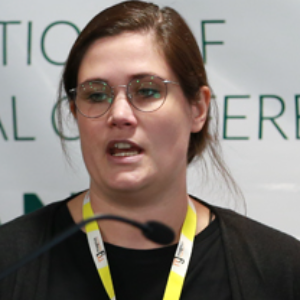Title : Improvement of plant immunity using RNA silencing-based plant protection strategies
Abstract:
RNA silencing (also known as RNA interference, RNAi) is a conserved and integral aspect of gene regulation mediated by small RNAs (sRNAs) that direct gene-silencing on the level of transcription but also post-transcriptionally. At the transcriptional level, gene expression is inhibited via RNA-directed DNA methylation (RdDM) while at the post-transcriptional level (PTGS) direct mRNA interference causes inhibition of translation. Originally, RNA silencing is associated with protection against viral infection, control of epigenetic modifications, regulation of genome stability, curbing of transposon movement and regulation of heterochromatin formation (Koch et al. 2017). Besides its natural function, RNA silencing has emerged as a powerful genetic tool for scientific research over the past several years. It has been utilized not only in fundamental research for the assessment of gene function, but also in various fields of applied research, such as agriculture. In plants, RNA silencing strategies have the potential to protect host plants against predation or infection by pathogens and pests mediated by lethal RNA silencing signals generated in planta (Koch et al. 2013, Koch and Kogel 2014, Abdellatef et al. 2015, Gaffar and Koch 2019). In addition to the generation of RNA silencing signals in planta, plants can be protected from pathogens and pests by exogenously applied RNA biopesticides (Koch et al. 2016). Regardless of how target-specific inhibitory RNAs are applied (i.e. by endogenously or exogenously), the use of target-specific inhibitory RNAs (iRNAs) for plant protection is a potential alternative to conventional pesticides because iRNAs are i) highly specific and easy to produce and ii) can be developed against an unlimited range of pathogens possessing an RNA silencing machinery. Given its significant potential for environmentally safe agriculture, the overall scientific goal of my research is to study how RNA silencing in plants can be utilized/implemented as technology to improve plant disease resistance.



